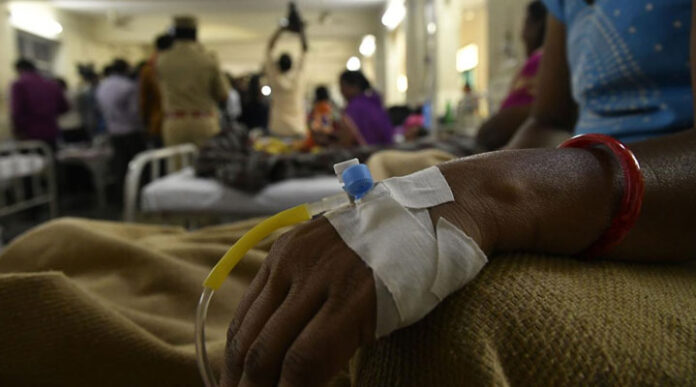Despite the Healthy Ministry’s efforts, centers fail to submit patient request forms for approval.
Only two of the nine medical centers chosen from around the nation and given funding for treating patients with various rare diseases have filed applications, despite the Health Ministry establishing instructions and procedures for doing so.
The delay increases the risk for a number of patients who are still battling uncommon diseases and are nearly entirely reliant on government funding for their medications and medical care. In order to ensure that no patient suffers without care, the Ministry has now written to these medical institutions requesting that they quickly address the issue.
“The National Policy for Rare Diseases was finalized in March 2021 after a protracted delay, providing financial aid of 20 lakh to just Group 1 patients (Disorders amenable to one-time curative treatment). In May 2022, the policy was changed, providing “50 lakh financial aid to all groups of Rare Diseases,” according to Manjit Singh, head of the Lysosomal Storage Disorder Support Society.
He noted that although the Health Ministry had given these medical centers guidelines on how to use the 50 lakh per patient award for treating rare diseases for several months, the majority of them had taken no action to put the guidelines into action.
“While the Ministry is concerned about and committed to resolving this delicate matter, it is the responsibility of all these centers to review the applications of qualified patients and recommend the same to the Ministry in order to get funding. Some institutes are not entertaining the request applications of patients who have been approaching them. For these individuals, precious time is running out,” he remarked.
To assist patients with unusual disorders, the Health Ministry has chosen nine institutions, including the All India Institute of Medical Sciences in Delhi, the Sanjay Gandhi Post Graduate Institute of Medical Sciences in Lucknow, and the Institute of Child Health and Hospital for Children in Chennai.
A rare disease, according to the Ministry, is a health issue with a low prevalence that affects fewer people than other diseases that are common in the general population. Degenerative diseases, uncommon malignancies, infectious tropical diseases, and hereditary illnesses are all included. Since up to 80% of rare diseases have hereditary causes, children are disproportionately affected by them. Children account for 50% of newly diagnosed cases and 35% of all deaths before the age of one year, 10% between the ages of 1 and 5, and 12% between the ages of 5 and 15.
“You are requested to furnish the requisition/demands in respect of the rare disease patients being treated in the center, to the Department of Health and Family Welfare (Rare Diseases Cell), so that the funds allocated in the year 2022–2023 can be used for the treatment of rare disease patients, and further demands for funds can be made in the year 2023–2024,” the Ministry wrote in a letter to these centers. Additionally, each center must get information on patients (along with the disease category) registered for rare diseases.
Additionally, it stated that so far, proposals have been received from IPGMER in Kolkata and PGIMER in Chandigarh.





